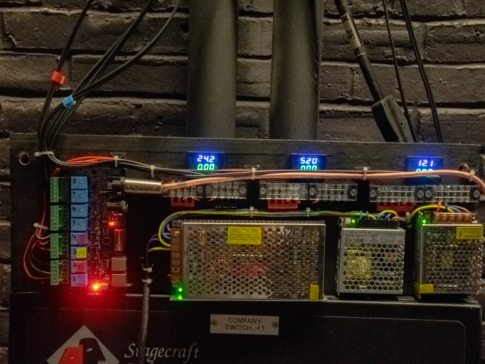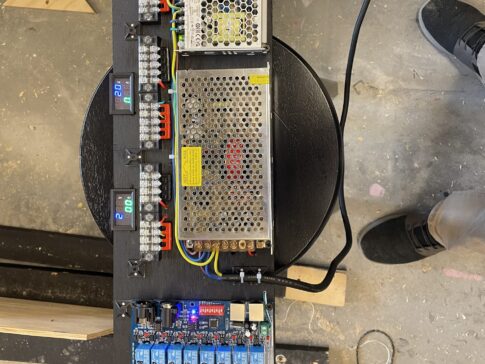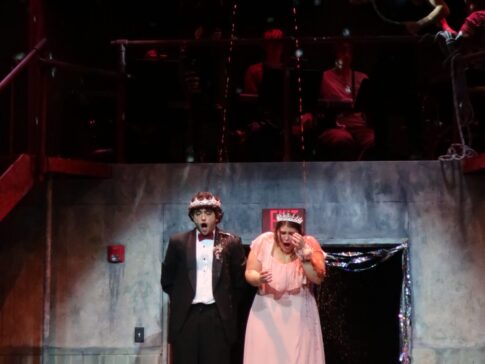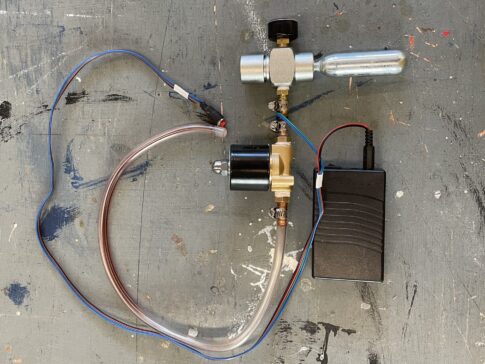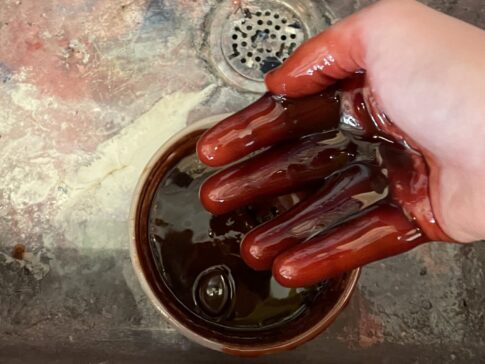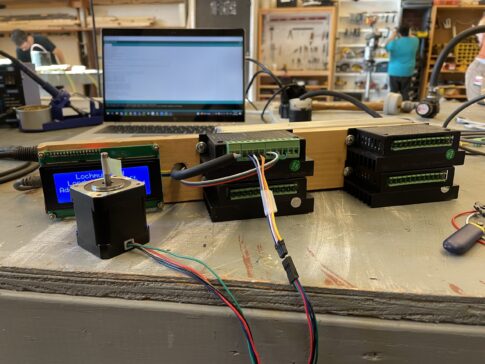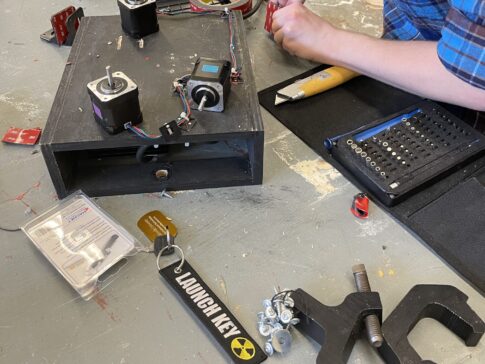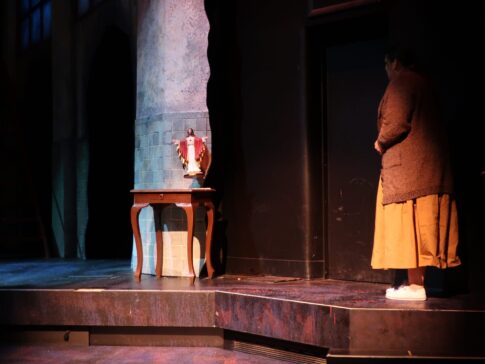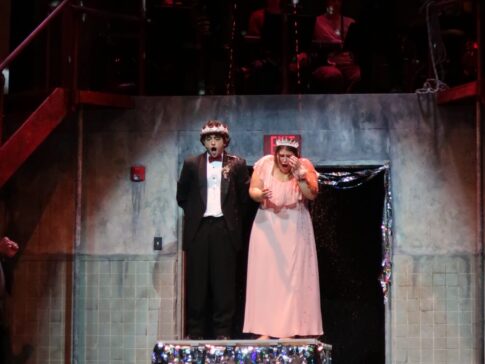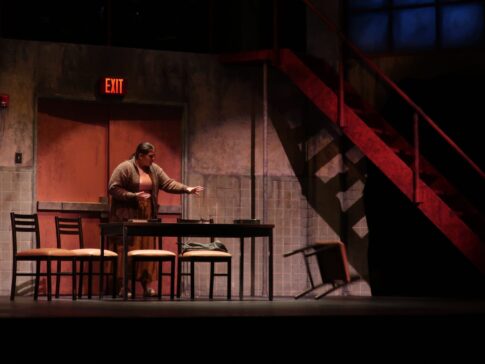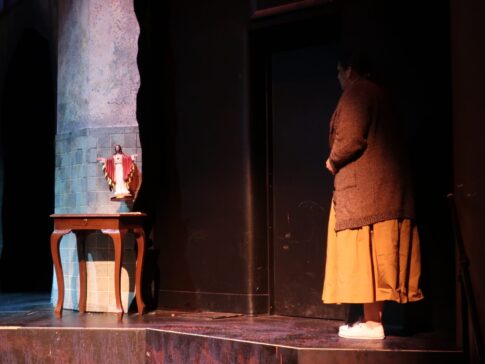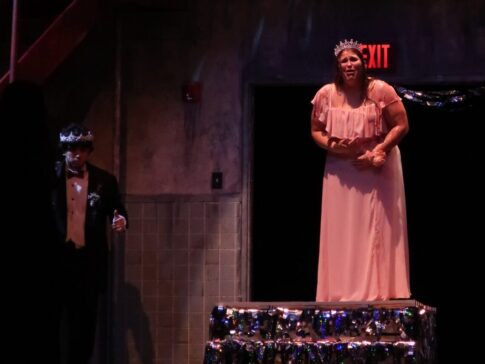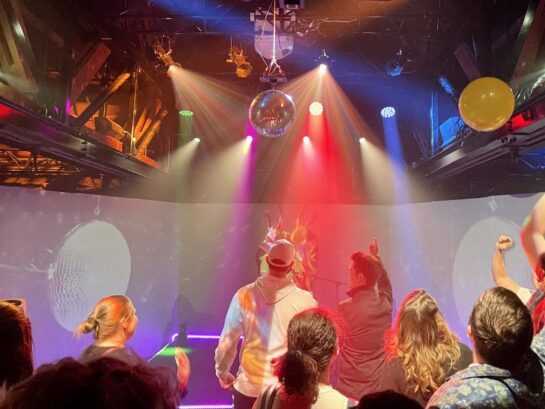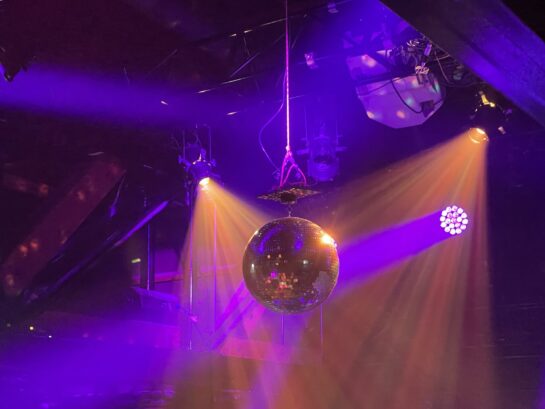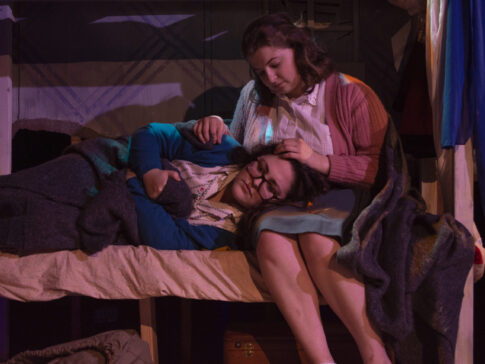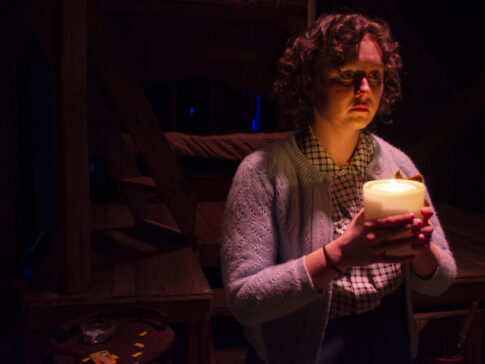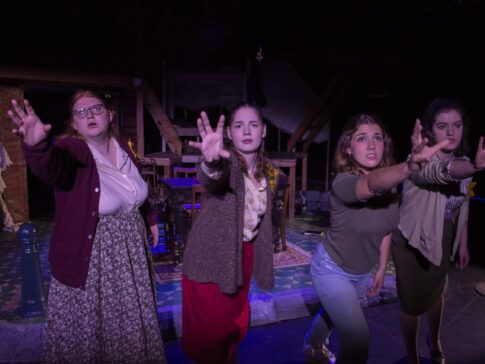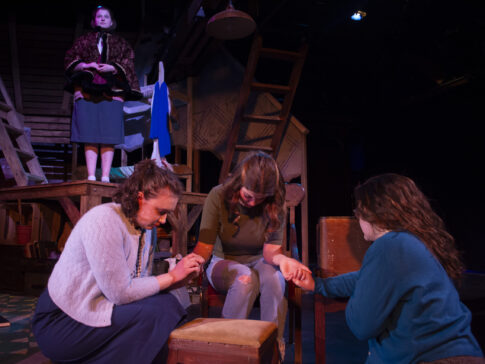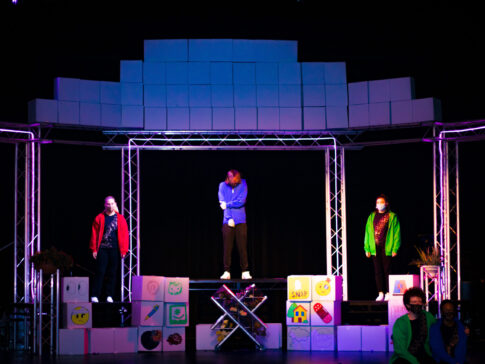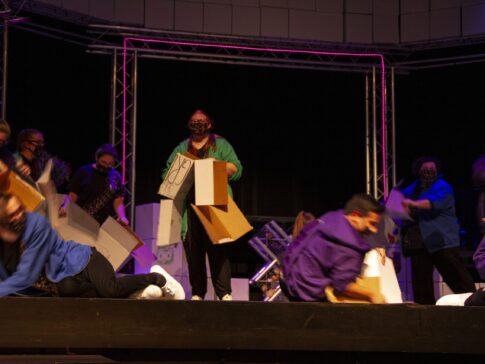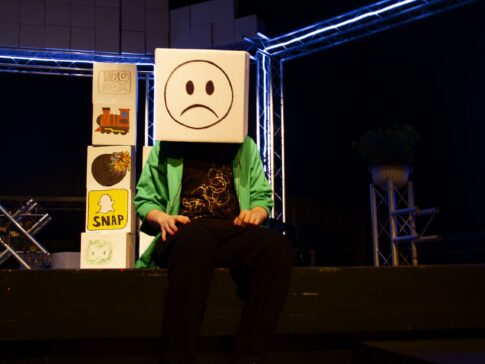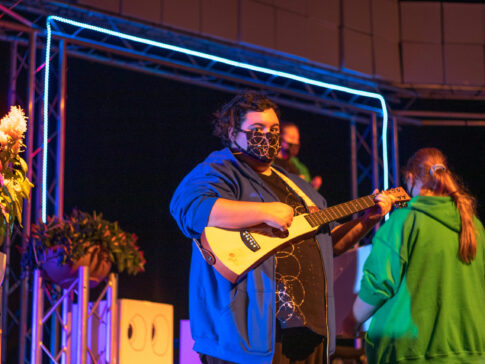Author: kmoyer
LED Tape
SPX Control
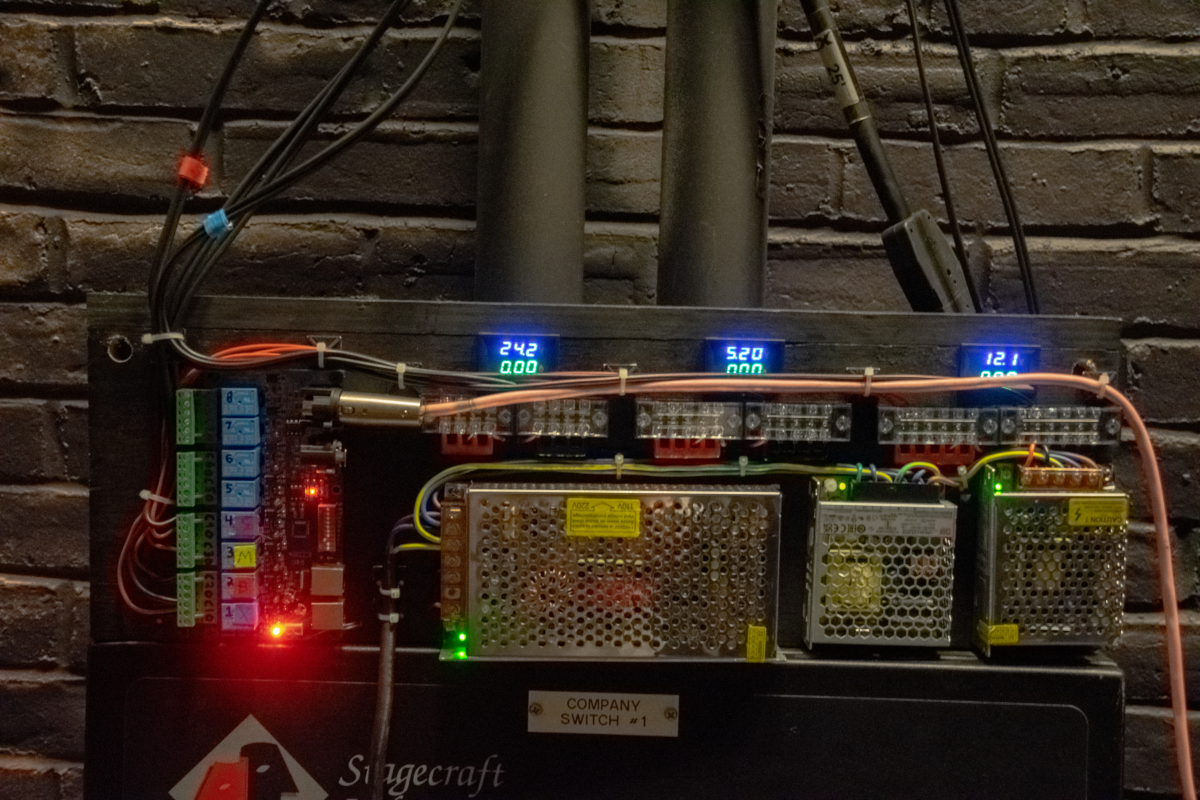
Special Effects Control
The Mission
Enable low-cost DMX control of practical fixtures and effects.
The Execution
I developed and built a custom control module with the assistance of associate designer Christian Curry. The main control module was built with three power supplies at the common voltages that the equipment we used required. Each power supply was fed through a monitor for voltage and current, to provide instant feedback for monitoring and troubleshooting on the output. Each supply fed a terminal block that could then be wired as needed into an 8 channel DMX relay that provided control from the lighting console, that also provided feedback of when a channel was activated. With the relays, it was possible to use both normally open and normally closed switch logic, which allowed us to do effects such as a magnet drop that needed to be powered the whole show.
The Results
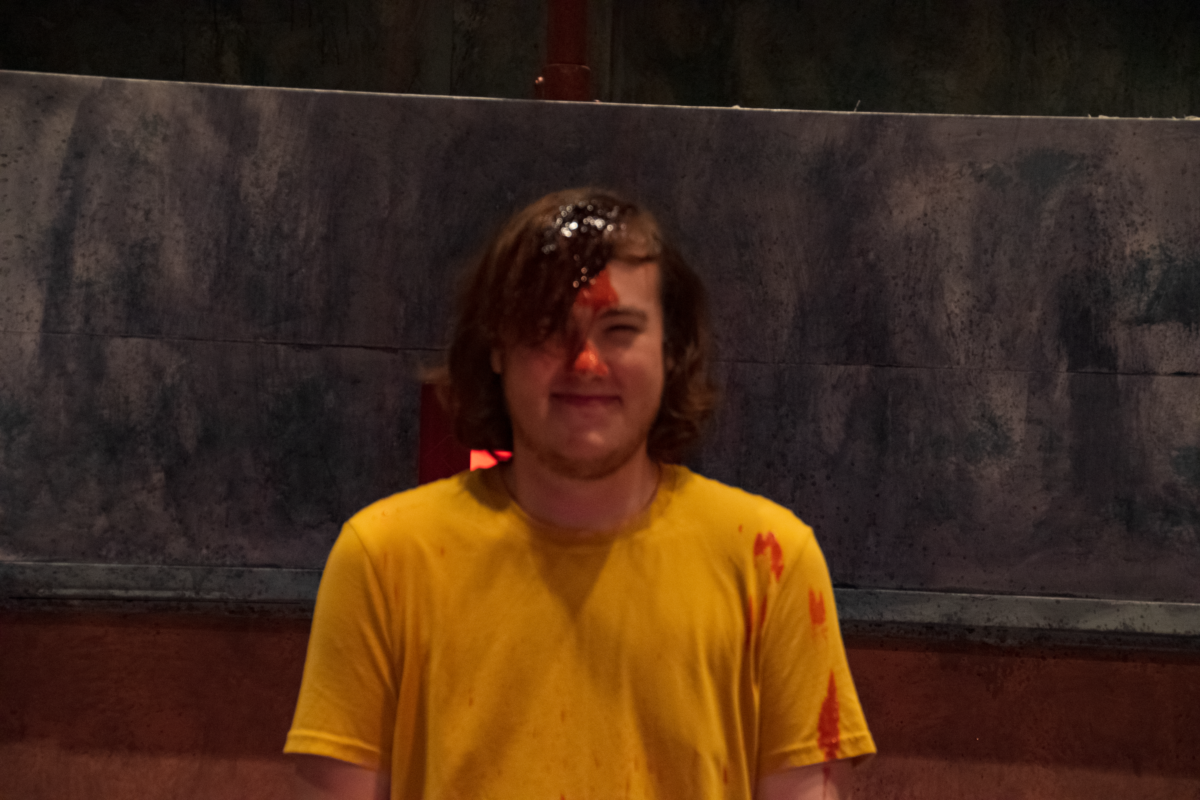
Blood
The Mission
Carrie: The Musical is an infamously bloody show, with one of the more notable scenes involving an entire bucket being dumped. The goal was to create a cheap and simple blood solution that could be produced in bulk to use on stage, and enable precise control of the blood.
The Liquid
The props team conducted initial research into potential blood recipies, narrowing down the options to a base of corn syrup mixed with cocoa powder and food coloring. After they conducted small-batch testing to ensure the blood would not stain fabric, we took over and handled scaling to the show quantity. In total, we produced just over 4 gallons of blood for the blood drop, in addition to a smaller batch utalizing glycerin as a corn syrup replacement for a seperate effect.
The Effects
The main blood effect of the show is the blood bucket drop. For the sake of safety and simplicity, the bucket lifted by the actors did not contain any of the blood that got dropped. Instead, the empty bucket was hidden behind a border in the same location as a bucket filled with the dropping blood. This blood was released through a solenoid controlled by the SPX control module, and fed through a wide spray nozzle to give it a more authentic blood look.
The glycerin-based blood was used for an on-person rig. This rig enabled the actor to “bleed out” from their chest. The rig utalized a CO2 cartridge with a regulator, fed into a solenoid for activation. To prevent a misfire, the rig had to first be enabled by a second actor before the first was able to push the button on their chest and fire the rig.
The Results
The Lordvitator
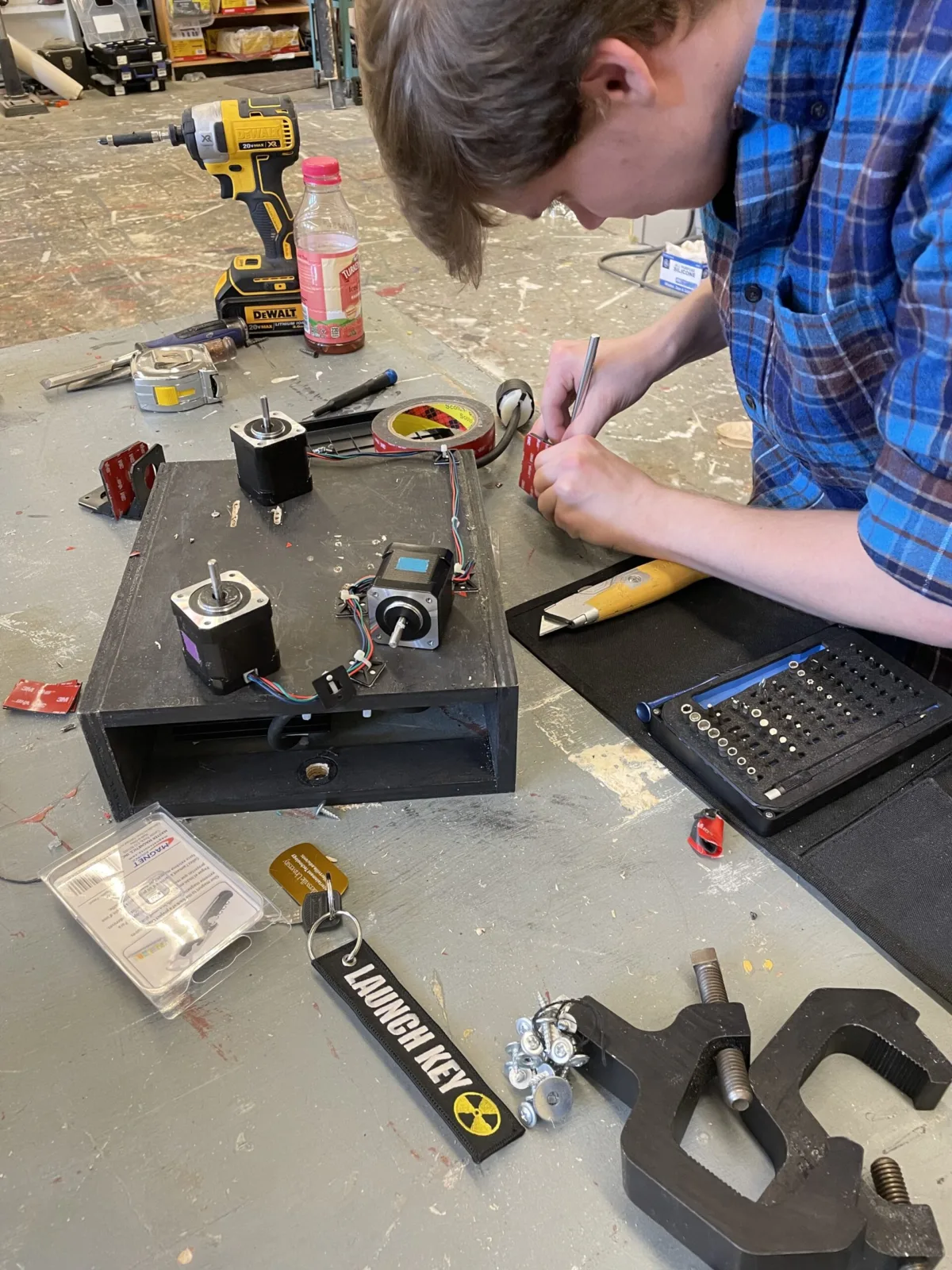
The Lordvitator
The Mission
Create the illusion of levitation in a large open space without requiring a stagehand, in a way that can be set up and struck within seconds.
The Process
We assembled various components to test the effect with prior to committing to the full rig. This included two types of thread, as well as an Elmo toy as we did not yet own a Jesus statue.
The Execution
The unit, affectionately named the “Lordvitator”, consisted of three DMX controlled stepper motors. These motors have spools attached and wound with fishing line, that then get attached through magnets to the statue.
The software for the rig ran on an Arduino Uno with a MAX485 based shield for DMX input. The unit looked at two DMX channels – one for speed, and one for direction – and updates the movement accordingly. This allowed us to perform the correct movements and speeds with board control.
Not everything goes to plan, and during install one of the connectors snapped off of the DMX board. We made a switch from digital to analog – by simply using a rod mounted behind a wall to move the statue up and down. While this method was more visible, it provided a needed solution to make the effect happen.
The Results
Carrie: The Musical
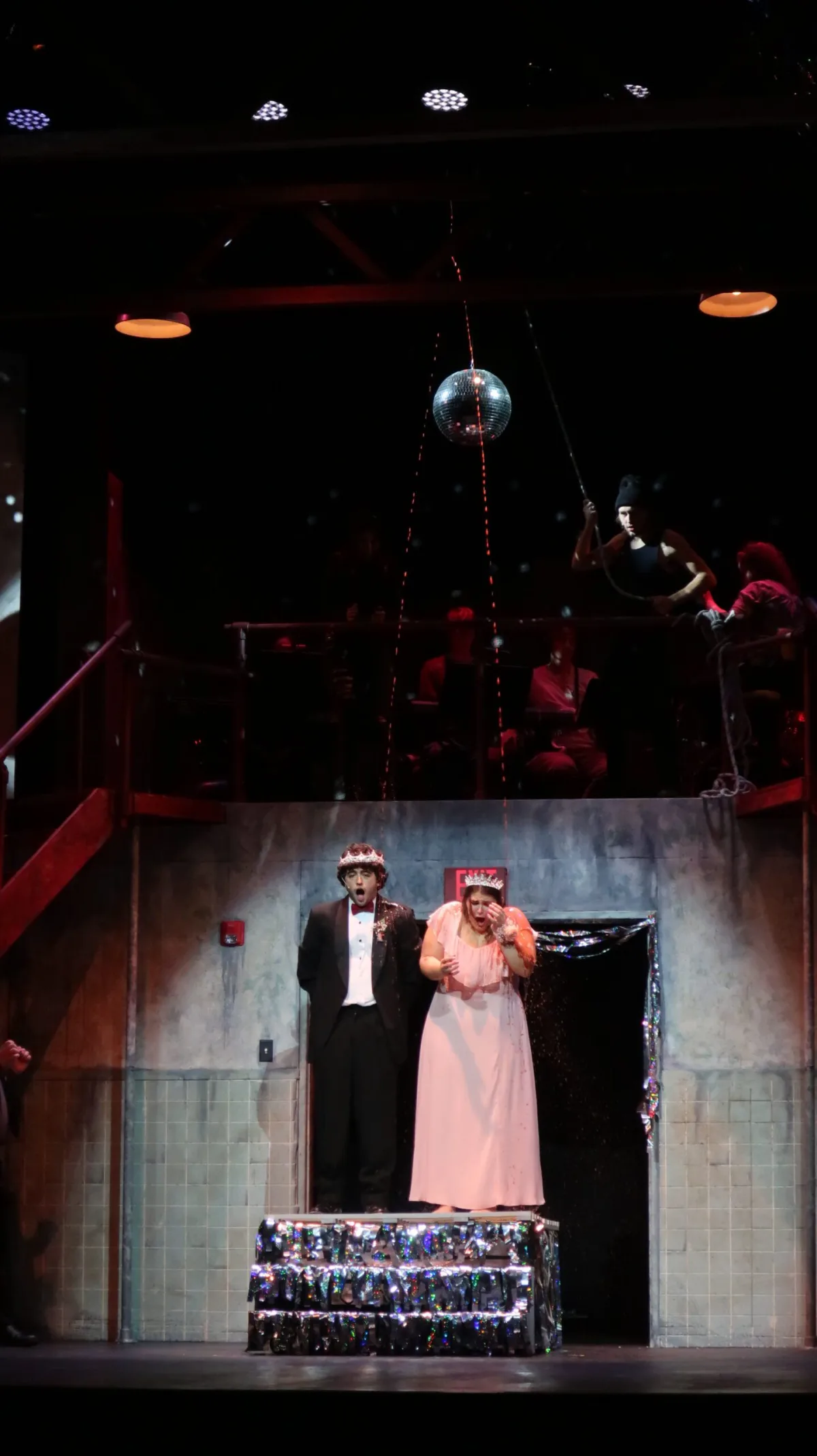
Carrie: The Musical
Special Effects Design and Automation
Written by Lawrence D. Cohen // Dir. by Jonathan Strayer // Scenic by Andrue Morgan // Lighting by Adam Boyer // Costumes Victoria Layser // Associate SPX Christian Curry // Photos by University Theatre
The Show
Carrie is a musical adapted from the Stephen King novel of the same name. Notorious for its initial failure and ample use of blood, Carrie follows teenager Carrie White, a teenager girl with telekinetic powers who releases chaos upon her classmates after relentless bullying, culminating in a destrictive prom.
The Mission
The goal with this show was to bring the magic of the director’s vision to life in a manner that matched the intensity of the characters and the emotion of the story, while also balancing the physical limitations of the performance space. I wanted to develop the effects in a practical way, to ensure that they were reliable and cost effective.
The Execution
To realize the vision of the writers and director, I built custom rigs to provide various effects with the assistance of associate designer Christian Curry. Limited stagehands were available, so execution was focused on control through the lighting console. We designed and constructed a main control module to provide multiple power sources switched through DMX controllable relays, alongside a secondary single voltage unit.
We completed a total of 9 effects, most of which were concentrated within a 2 minute “destruction scene” towards the end of the second act. The simplest of these effects, the movement of some chairs through “telekinesis” was achieved through strings pulled by stagehands using cardboard tubes as handles. The most complex single effect was a blood rig for the mother Margret, who has blood seep across her chest. This was achieved through the use of a CO2 cartridge, controlled by a regulator, and triggered by an actor.
Additional Information
The following pages explain some of the effects and controls in greater detail.
The Results
Poe Down Throw Down
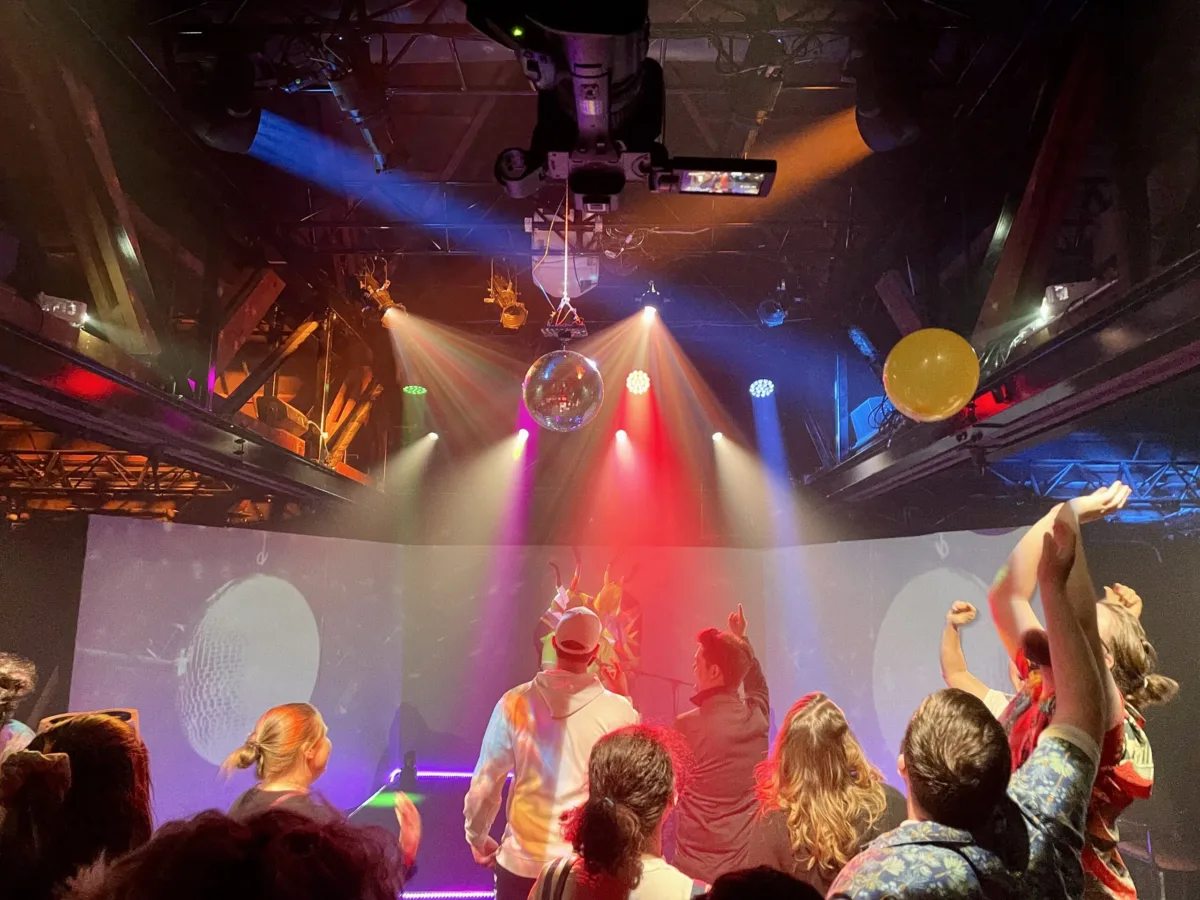
The Poe Down Throw Down
Lead Electrician/Technician
Produced & Created by Janet Hershey // Lighting by Janet Hershey // Photos by Kevin Moyer
The Show
The Poe Down Throw Down: The Story of the Telltale Heart was a rave based on The Telltale Heart by Edgar Allen Poe. The show featured a set performed by Jake Delferro, with live projections and of course a mirror ball.
The Mission
The goal with this show was to make a swift transition using the same equipment from the previous show, with limited time and hands to do so.
The Execution
I divided the space into two regions each with their own universe, and networked each fixture to act as an output node to each region. The fixtures were pre-addressed on the ground to accelerate the process. By networking the initial fixtures, it was possible to ensure that console placement remained flexible as the space changed while other work was taking place.
Her Sister
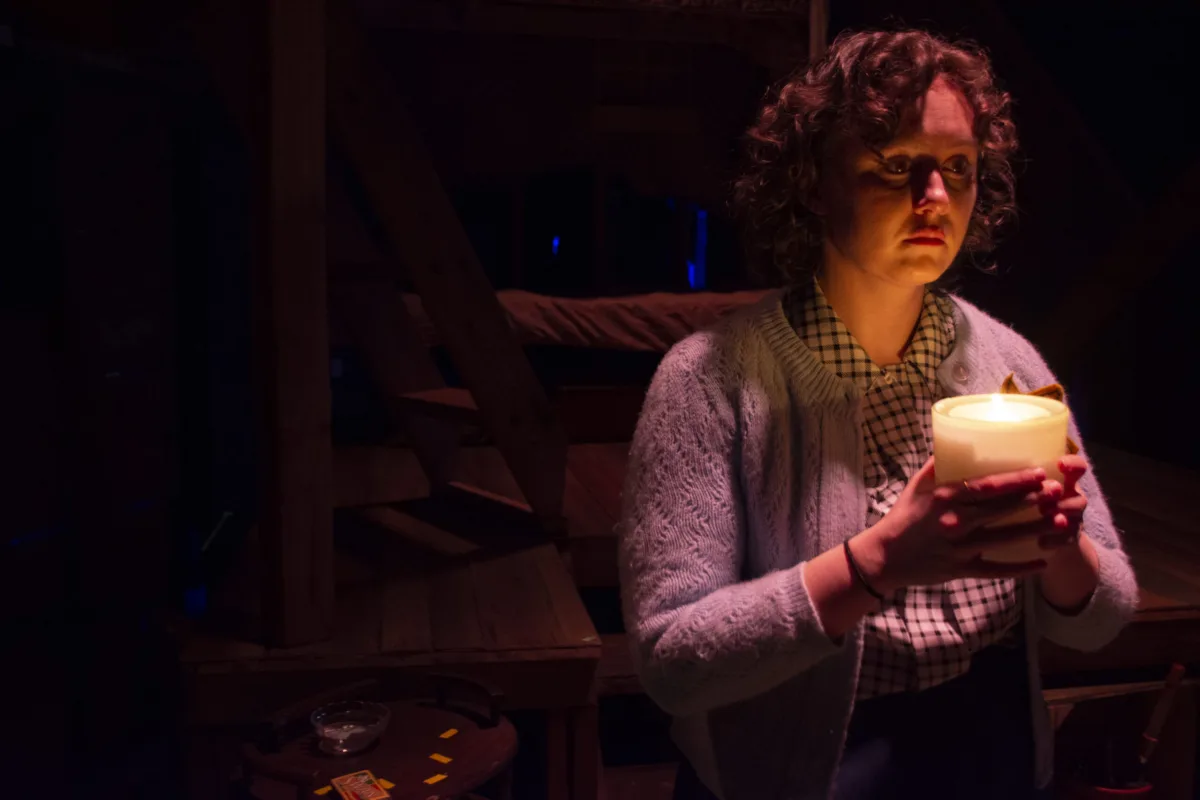
Her Sister
Lead Electrician
Written by Kendra Phillips // Dir. by Jonathan Strayer // Scenic by Tom Ryan // Lighting by Adam Boyer // Costumes by Priscilla Kaufhold // Sound Design Tony Taylor // Photos by University Theatre
The Show
Her Sister by Kendra Phillips was premiered in 2022 by Millersville University of Pennsylvania as a part of their Conference on The Holocaust and Genocide. The show is a memory play told through the perspective of Margot Frank, traveling through the last few years in her life from her home in Amsterdam.
The Mission
Prepare for and execute lighting design with specialty practicals for a show in a small found-space blackbox theatre.
The Execution
My initial focus was on updating inventories and testing equipment during work calls leading up to the point at which we received the design. This included training technicians to perform testing and small repairs to fixtures, as well as working with one of the manufacturers to verify warranty and receive repair on one of our LED fixtures.
For execution of the plot, I broke the space into three separate bays defined by the rafters of the building. Each bay was given its own universe, and addresses were broken down within. Initially, control was based on running the first moving fixture in each bay on network, with each fixture acting as an output node to the remainder of the bay. The fixtures, however, had a firmware issue that resulted in flickering on the output, so a dedicated control line was run from the console to each bay.
This show featured a mix of real and fake candles. The fake candle had a Multiverse receiver fitted to allow the lighting designer to control the intensity of the flame, with specialty high capacity 9 volt batteries specced to ensure that the candle would last for the duration of the show under the high current draw of the receiver.
The Results
Love and Information
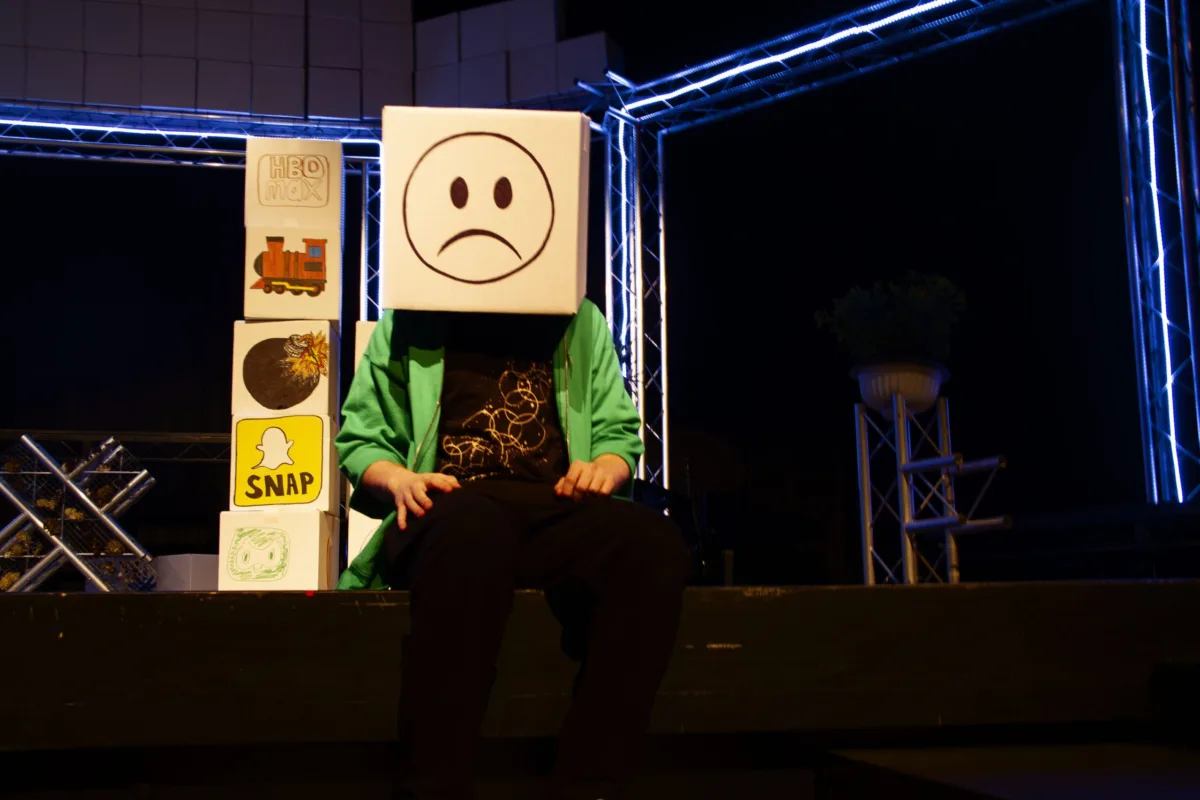
Love and Information
Lighting Technician
Written by Caryl Churchill // Dir. by Jonathan Strayer // Scenic by Adam Boyer // Lighting by Janet Hershey // Sound by Zacc Bangert // Photos by University Theatre
The Show
Love and Information is a play noted for its complex scenes presented without order, only organized by the director in the sequence of their choosing. The piece is abstract, leaving open many opportunities for creative design.
The Mission
Work with the head electrician to execute the designer’s plot, and develop an effective implementation of specialty LED tape used in the design.
The Execution
The main challenge on this show was the implementation of specialty pixel tape from City Theatrical. The designer for this show wanted to display the flow of data from one point to another, and to do so we purchased QolorPix controllers and tape from City Theatrical to attach to the scenic trussing on stage. I worked with the manufacturer to spec and build custom cables to run to the tape, and with the programmer to establish and understand the control method for the tape.
The Results
